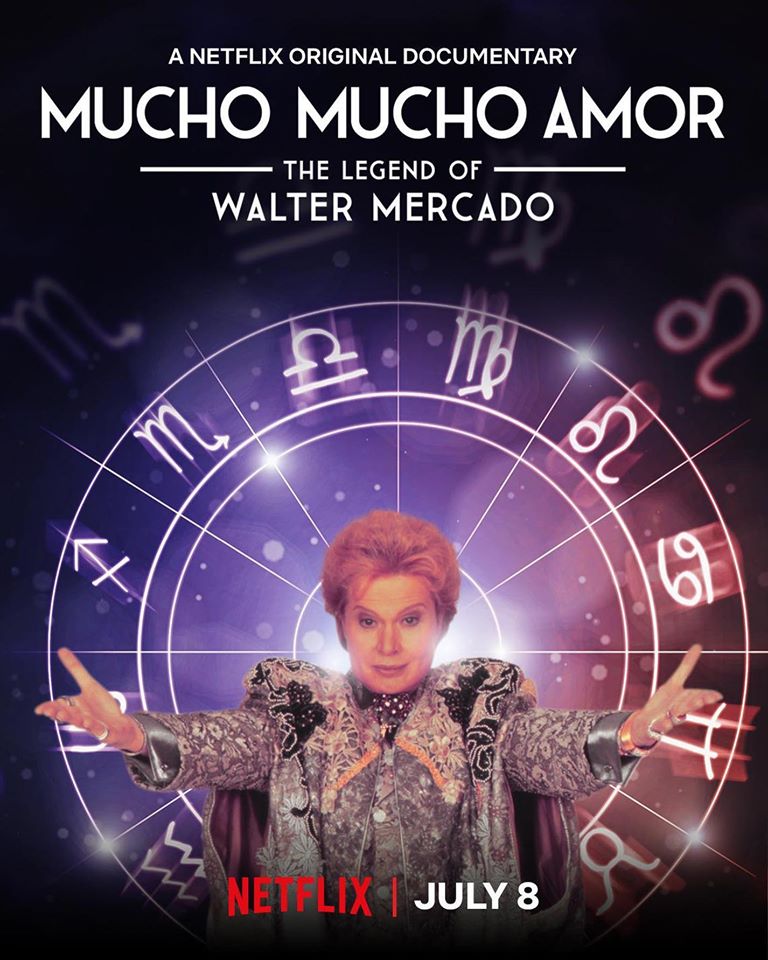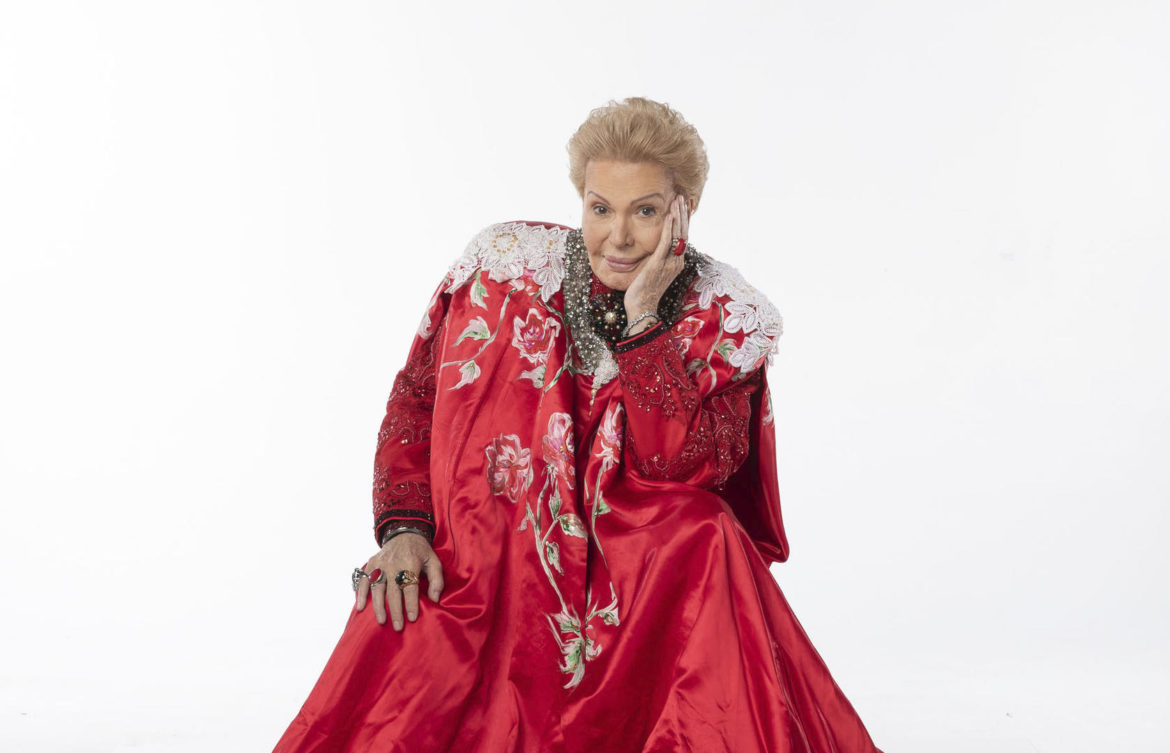
Walter Mercado was many things. He was an astrologer, a spiritual teacher, a fashion icon, and a champion for LGBTQ rights and non-binary acceptance. He was also, depending on ethnic background, listed among the most famous celebrities on the Earth; but outside the Hispanophone, he was relatively obscure despite being interviewed by the likes of Anderson Cooper and Howard Stern.
Walter Mercado passed away late last year. Now, less than a year after his crossing, Netflix has released a new documentary film, Mucho Mucho Amor: The Legend of Walter Mercado, by filmmakers Cristina Costantini and Kareem Tabsch.
The film explores not only the extraordinary life of Walter Mercado, but also his complicated character and his expansive legacy. The film reveals his glamour, the opulence of his wardrobes, his obsession with capes, and his personal spiritual journey over his 50 years in public life.

via Netflix
The documentary is extraordinary, especially for those who grew up watching him on television. It discusses not only his rise to prominence, but his betrayal by a former trusted manager, Bill Bakula. Mercado signed a contract that turned over to Bakula all of Mercado’s rights, assets, and even his persona. It was an exceptionally difficult time that caused Mercado to vanish from public appearances for five years, and in many ways, silenced the astrologer for even longer.
The new documentary celebrates Mercado and restores his voice, vision, and charisma.
And it is a story intimately accessible to every community. “We were entrusted with Walter’s legacy and had the responsibility of getting that right,” said Tabsch, who is Cuban American. “But we were also the Latino filmmakers making a Latino film for a wide audience — sometimes we say that means a white audience — and we had the responsibility of doing it right because it always feels like it’s the only shot you are going to get.”
As the legend goes, when Walter Mercado was a boy in his birthplace of Ponce in Puerto Rico, he saw a dying bird fall in his yard. A neighbor watched as the boy prayed over the bird, and it suddenly flapped its wings then flew away. He would become the boy who brought miracles.

Walter Mercado [Courtesy: Netflix]
Years later, Mercado would become a ballet dancer, actor, and finally an astrologer and spiritual teacher. At the height of his power, he would reach 120 million households across Latin America. There are rumors that the Smithsonian is interested in preserving his wardrobe.
The film is both a recounting of his journey and an autobiography, told by Mercado himself during the last years of his life. The filmmakers are brilliant in their handling of this. They convey his magical and personal personas. They show his contentment and his disillusionment after Bakula’s betrayal. They also show him rising, re-asserting his charisma, compassion, and message in the later years of his life.
Memes and impersonations of Walter Mercado came out over the years. “People might not understand that Walter was in on his own joke,” Constantini said in an interview with the LA Times. “He understood what he looked like and what he was doing. That’s the brilliance of it all. Like in any religion, you have to dress things up in order for the message to carry. These things that seem trivial are actually quite important to his success. As little kids, we were enthralled by the capes, but his message is the thing that sticks around for so long in so many of us, that feeling of love.”
The film shows how Walter persisted in the face of bigotry, bullying, and homophobia. The film also shows how he cut across generations to convey his message and succeeded in becoming one of the most celebrated individuals in Latin America.
The film might never have been made had it not been for an encounter between Mercado and Lin-Manuel Miranda, the composer of the Broadway hit Hamilton. Miranda’s visit Mercado showed the scope of his influence.

Lin-Manuel Miranda with Walter Mercado in 2019 [via Facebook]
As he gets increasingly emotional, Miranda says to Mercado, “I grew up watching you with my grandmother. “
Indeed, we all did. As my own sister would remind me, “When Walter came on TV, everyone stopped to listen to his horoscope.” We all watched. And then we discussed it, and life would continue. You would go to get coffee or got to work, and be asked: “Did you hear what Walter said?”
The film is sweet and nostalgic but never saccharine. It is a great story of perseverance and Mercado’s masterful awareness of self. Mercado considered himself a spiritual alchemist blending aspects of different religions and philosophies. But in his own words, he said: “You have to be nice to people, you have to give the best of yourself every moment of your life, and you have to believe in yourself.”
Mercado had one singular philosophy that guided his life: “Love is the reason for everything.” His philosophy shines through this film – “Con mucho, mucho, mucho mucho amor!”
The Wild Hunt is not responsible for links to external content.
To join a conversation on this post:
Visit our The Wild Hunt subreddit! Point your favorite browser to https://www.reddit.com/r/The_Wild_Hunt_News/, then click “JOIN”. Make sure to click the bell, too, to be notified of new articles posted to our subreddit.